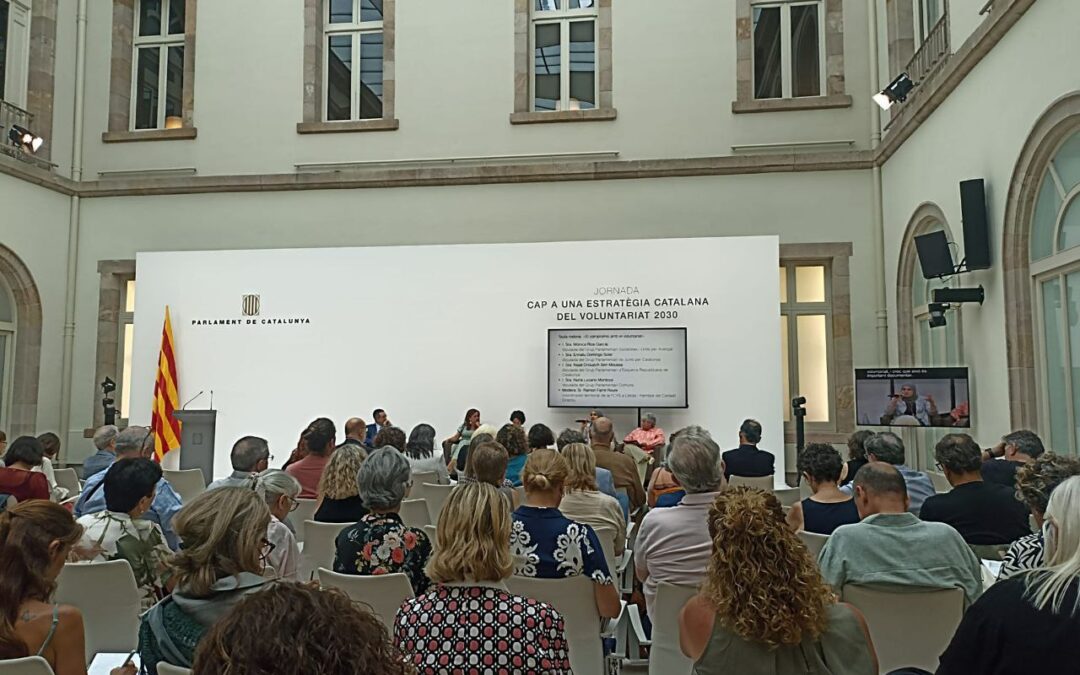On July 8, the Fundació Catalunya Voluntària participated in a very special event: the conference “Towards a Catalan Volunteer Strategy 2030” at the Catalan Parliament.
The event, organized by the Catalan Federation of Social Volunteering (FCVS), celebrated the 10th anniversary of the approval of the Catalan Law on Volunteering and Associations, encouraged the volunteer organizations present to continue their work, and reported on the eleven common challenges facing volunteering across Europe.
The event, opened by the President of the Parliament and concluded by the Secretariat of Social Affairs and Inclusion of the Catalan Government, highlighted the transformative and innovative value of volunteering, its community impact, and its role as a guardian of human rights and democracy. It served as an institutional opportunity to celebrate the work of a sector (specifically, the third sector) that, despite its discretion and humility, helps 2 million people in Catalonia alone, including the most vulnerable.
The event brought together political representatives and representatives from volunteer organizations (the vast majority), including the European Volunteer Centre and the Spanish Volunteer Platform, along with representatives from universities and companies that run volunteer programs.
We heard some of the sector’s long-standing demands, such as increasing visibility for the work of volunteers and organizations, securing more funding to ensure program continuity, and newer ones, including access to sector data and implementing regulations to enforce the 10-year-old law.
We heard some “classic” concerns, such as the lack of generational renewal, the difficulties in engaging young people, and the rise of individualism, as well as newer ones, such as the risks of technology and artificial intelligence.
We would like to highlight two comments made by the university representative: creating micro-volunteering projects to encourage the participation of young people and recognizing that individualistic selfishness, not solidarity, sets the pace at universities (spaces where the largest number of young adults are concentrated), as well as the comment by the representative for alliances and international projection of the FCVS, recognizing volunteering as a right to overcome a certain social perception according to which volunteering can be seen as a privilege available to a few people, which is a historical demand of the FCV.
In the final act of the event, 11 representatives from 11 prominent Catalan organizations symbolically read out the 11 challenges of the European Strategy for Volunteering, which are:
1. Emergency prevention and response
2. Feminist volunteering
3. Accessible and inclusive volunteering
4. Commitment to social change
5. The role of volunteers in the community
6. Caring for volunteers
7. Volunteering in rural areas
8. Independence and sustainability of the third sector
9. Cohesion and collaboration
10. Generating knowledge and a data culture
11. Regulatory development, recognition of volunteering, and accreditation of skills acquired through volunteering.
The day concluded with a commitment from four members of the Catalan Parliament, representing the four political parties with the most seats, to collaborate with volunteer-based organizations in addressing these challenges.
For more details on the challenges, you can access the manifesto at this link (in Catalan).
For more information, you can check out the news and a photo gallery here (in Catalan).







